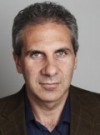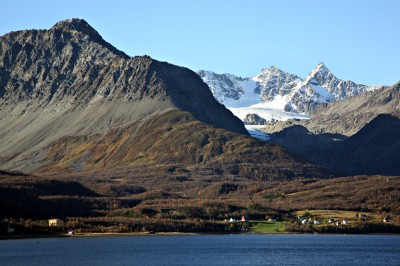 COMMENTARY: Norway’s economy is still on a roll, and keeps catching the attention of analysts and investors around the world. It emerged relatively unscathed from the recent finance crisis, is poised for continued growth and boasts an unemployment rate that’s less than half the size of the European average. Andrew Schiff of US-based Euro Pacific Capital (photo) recently wrote highly of what he called Norway’s “well-disciplined” economy that combines a social welfare state with entrepreneurship. His piece, from a recent Euro Pacific investor newsletter, is reprinted with permission here:
COMMENTARY: Norway’s economy is still on a roll, and keeps catching the attention of analysts and investors around the world. It emerged relatively unscathed from the recent finance crisis, is poised for continued growth and boasts an unemployment rate that’s less than half the size of the European average. Andrew Schiff of US-based Euro Pacific Capital (photo) recently wrote highly of what he called Norway’s “well-disciplined” economy that combines a social welfare state with entrepreneurship. His piece, from a recent Euro Pacific investor newsletter, is reprinted with permission here:
Many of our long-term readers are aware of our preference for non-Eurozone Europe as a destination for investment capital. It’s not that we have a problem with the crepes of France, the espresso of Italy, or the bratwurst of Germany, it’s just that the conflicting and unstable structure of the European Union as a political organization, and the euro as a currency, give us a slight case of economic indigestion. We prefer our European investment exposure to be pure. And we believe some of the best flavors can be found in Norway. Who doesn’t love a nice smoked salmon?

Norway, like its next door neighbor Sweden, is not a member of the Eurozone (the collection of 17 countries that use the euro as currency). It has its own currency, the Norwegian krone. Unlike Sweden, Norway is not even a member of the 27-nation European Union. We like that kind of independence. As a result of this distance from chronic debt in some heavily indebted European states (Greece, Portugal, Ireland, etc.), we feel there is less chance that the Norwegian economy and its currency get dragged down by external problems. In fact over the past two years, an era characterized by a continually unfolding debt crisis, the Norwegian krone has appreciated against the euro by 11.5 percent (Bloomberg, 2011).
But what we really love about Norway is its abundant natural resources and well-disciplined economy. Timber, petroleum, and of course seafood can all be found in this sparsely populated country. And although the country practices a brand of state socialism that we don’t support, it practices what is known as the “Scandinavian model,” which combines welfare state services with light regulation of industry and active promotion of private resource development and entrepreneurship. It also helps that the Norwegians themselves are highly educated, hard working, and fiscally responsible and that 99 percent of the country’s energy comes from hydroelectric power.
From a fundamental standpoint, Norway ranks higher than most other nations as well. The country had a 3.6 percent unemployment rate in Feb 2011 versus 9.9 percent for the Eurozone and 8.9 percent for the US. Its trade surplus at Dec 2010 was USD 6.1 billion versus a deficit of USD 712 billion in the Eurozone and USD 40 billion in the US. The country’s finances are in good order, with the government running a 9.5 percent surplus as a percentage of GDP versus an estimated 10 percent deficit for the Eurozone and an 8.6 percent deficit for the US, which is projected to grow even deeper. Norway maintains a higher GDP per capita than the US as well, at USD 52,238 versus USD 47,123 in the US.
Additionally, the Norwegian krone looks far from being overvalued versus the dollar. The traditional theory that currencies with higher nominal rates decline over time because of market efficiency regarding real rates cannot adjust for the fact that certain central bankers are expanding the monetary base at record speeds. Real rates are in fact not equal across the globe – and Norway has some of the highest. With Norway two-year government yields at 2.6 percent and the latest CPI number coming in at 1.2 percent, the country has a positive real interest rate of 1.4 percent. Contrast this with the US two-year yield of 0.55 percent and latest CPI number of 1.6 percent, which put real rates in the US at negative 1.05 percent.
Country fundamentals and outlook for the currency have us consistently positive on Norwegian investments. Our portfolio managers have recently returned (with several favorite picks) from a trip to Norway where they met with many companies active in the energy, resource, banking, and infrastructure sectors. Given the recent run-up in energy and food prices around the world, Norway is particularly well–positioned to benefit from current trends.
Andrew Schiff is Director of Communications & Marketing with Euro Pacific Capital, a full-service, registered broker/dealer specializing in foreign markets and securities, and based in Westport, Connecticut. Euro Pacific recommends many Norwegian companies as long-term investments for US investors, along with Norwegian government bonds as an alternative to US Treasure Bonds. Opinions expressed are those of the writer.

